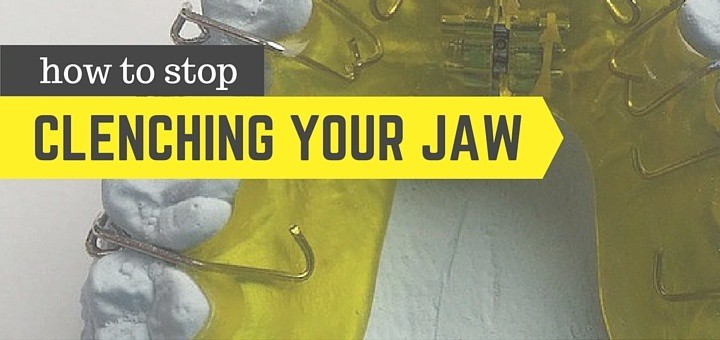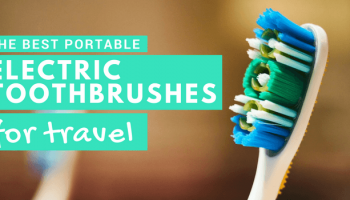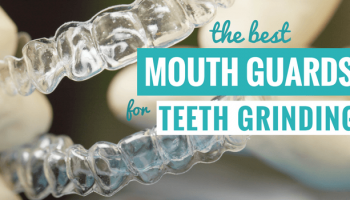If you’re wondering how to stop clenching your jaw, it’s likely because you’ve noticed yourself involuntarily clenching your mouth, whether through various periods of the day, or at night (and often awaking to a sore jaw).
It’s not unusual for people to grind their teeth and clench their jaw from time to time, especially when they are sleeping.
However, regular and persistent jaw clenching can result in an array of dental and health problems. This condition of ongoing jaw clenching is referred to as bruxism. When left untreated, this seemingly harmless condition may result to permanent damage to the teeth and joint issues
Below we’ll detail the symptoms of jaw clenching, why it happens, and how to prevent it in the future. Read on to learn!
What Are The Signs of Jaw Clenching?
If you’re not sure whether or not you are suffering from bruxism or jaw clenching, then you should familiarize yourself with its signs and symptoms.
Some symptoms of jaw clenching include:
- Pain in the area surrounding your ears when you yawn and/or chew
- Morning headaches
- Painful or tight jaw muscles (especially in the morning)
- Flattened, fractured, or chipped teeth
- Indentations on tongue
- Teeth grinding heard by partner
- Increased sensitivity of tooth
If you have been experiencing these symptoms, you may be experiencing jaw clenching. But why is it happening? There could be a few different factors at play.
Why Does Jaw Clenching Happen?
Medical professionals are still not able to pinpoint exactly what it is that causes bruxism, but they have cited some possible causes. These are as follows:
- Sleep Disorders. Sleep disorders, such as obstructive sleep apnea, sleep talking, and hallucinations, increases the chance of developing bruxism.
- Side Effects of Medication. There are instances, although quite uncommon, when bruxism is brought about by the effects of medications that you are taking. According to studies, this condition is commonly linked to a certain type of medications called the selective serotonin reuptake inhibitors (or SSRI’s) which are used in treating depression.
- Lifestyle. Your lifestyle may also increase your chances of developing bruxism. Some of the lifestyle factors that may promote bruxism include drinking alcohol, smoking, use of recreational drugs and too much consumption of caffeinated drinks.
- Stress and Anxiety. According to some medical experts, jaw clenching can also be a side effect of psychological and mental problems like stress and anxiety. Based on studies, stressed and anxious people subconsciously grind their teeth and clench their jaw while they are sleeping.
Now that you know why you are suffering from jaw clenching aka bruxism, the next thing that you need to know is to how to stop it.
How To Stop Clenching Jaw: 4 Strategies
There are several different strategies you can implement to manage and correct jaw clenching, including:
1. Therapy & Relaxation
If your jaw clenching is due to stress and anxiety, there are some therapies that can be effective in managing bruxism.
You might consider methods of stress management such as yoga, meditation and exercise. You may also be advised to undergo behavior therapy that will help you to practice proper position for your mouth and jaw.
There is also the habit-reversal therapy, which will help you to relax your jaw muscles when feel that you are clenching your jaw.
2. Dental Options
Severe bruxism can cause damage to the teeth, which can be very costly to fix. Because of this, dental professionals recommend the use of mouth guards and splints to avoid the damage that comes with teeth grinding.
Dentists may also require their patients to undergo dental correction procedure to properly align the teeth, depending on the severity of your bruxism. Keep in mind that dental treatments cannot stop jaw clenching, but these options can help to correct the negative effects of the condition on your teeth.
3. Medications
Giving medications is not a proven practice in managing jaw clenching, and more research is required to really determine how effective the use of medications can be.
However, there are some instances when medications may come handy in managing such condition. One of the widely used medications are muscle relaxants. These are usually prescribed before bedtime to counteract the symptoms of sleep bruxism.
4. Home remedies
If you want fast and easy relief from the effects of bruxism, there are a few home remedies that can provide at least temporary comfort. Home remedies for bruxism include:
- Applying a warm compress over the jaw
- Gently massaging the mouth and jaw with your fingers to ease tensions
Sever Jaw Clenching? Contact Your Dentist
Contact your dentist to better understand how bruxism may be affecting your teeth and to assess the severity of your jaw clenching condition.




